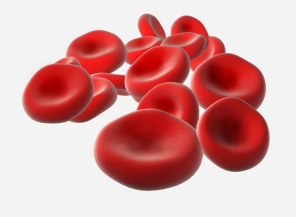
You can eat fruit and vegetables to your heart’s content.
I like to promote a varied and balanced diet – all in moderation. But no, I get criticised for recommending and not defining a balanced diet. I think it’s self evident, a bit of everything without overindulging in any particular food or food group, possibly with fruit and vegetables a free for all exception.
But food “nazis” want to air their opinions. They used to say that you should seriously reduce your fat intake, particularly saturated fat. Then they changed their tune and gave the all clear to fat, but instead banned carbohydrates in general and plain sugar in particular.
Extreme ketogenic diet
According to the latest fad you should try to get your metabolism into a ketogenic state by removing almost all carbohydrates from your diet. That way you force the body to burn its own fat and produce ketones that the brain can use for its energy needs. You will easily lose weight, mainly through water loss, and feel energised, they say.
Inspired by the US president who in early 2018 used the “shit” word I will indulge in some profanity and say “bullshit”. While a ketogenic diet may be an appropriate short-term solution under strict supervision for some, and will result in weight loss, it could lead to serious health complications over time. In the long run, a keto diet will do more harm than good for a majority of the population, especially if they have any underlying kidney or liver issues.
Ketogenic diets practically eliminate an essential food group from your diet, which means you are not going to be getting all of your daily nutritional needs from this diet. This diet is also very low in fibre, which can cause your digestive system to slow down. You will be forced to take mineral supplements or vitamins to hit your daily needs that you will not be getting from a ketogenic diet.
The essential iron

Our red blood cells need iron to function.
That’s a long winded introduction to get us to iron and the important balance of iron intake. Iron is an essential component of life. It is responsible for transporting oxygen in red blood cells, for activation of enzymes involved in DNA production and for energy production in the cell. Iron deficiency impairs oxygen transfer throughout the body, cell division and energy production yet, excess “free” iron that is not bound to any protein may trigger oxidative stress that can be toxic to the organism.
So it is not the case of the more the better. Both iron deficiency or overload may lead to damaging effects by mediating inflammatory diseases, cancer and neurodegenerative diseases, such as Alzheimer’s and Parkinson’s disease. And remember that all bugs, including the disease causing pathogens, love iron. Acquiring iron is crucial for the development of any pathogen. Too much iron through food or supplements encourage pathogen growth.
Complex mechanisms have evolved that illustrate the longstanding battle between pathogens and humans for iron access. Ferritin is one of the central factors regulating cellular iron content and protecting the organism from iron toxicity.
We learn more about iron balance all the time. A recent study looked at the distribution of the ferritin protein within cells and the mechanisms underlying its secretion from the cell. They found iron rich extracellular ferritin strongly implying that ferritin is not merely a vessel for secure and available storage of iron within the cell, but also a key player in tissue and systemic iron distribution.
Always more to learn
Even if we learn more about our complex metabolism all the time, there is still a lot of uncertainty remaining. So the safe bet is still to eat a balanced diet all in moderation, be it iron intake or any other nutrient.
And by all means reduce any excessive sugar intake as long as you maintain your fibre consumption.
